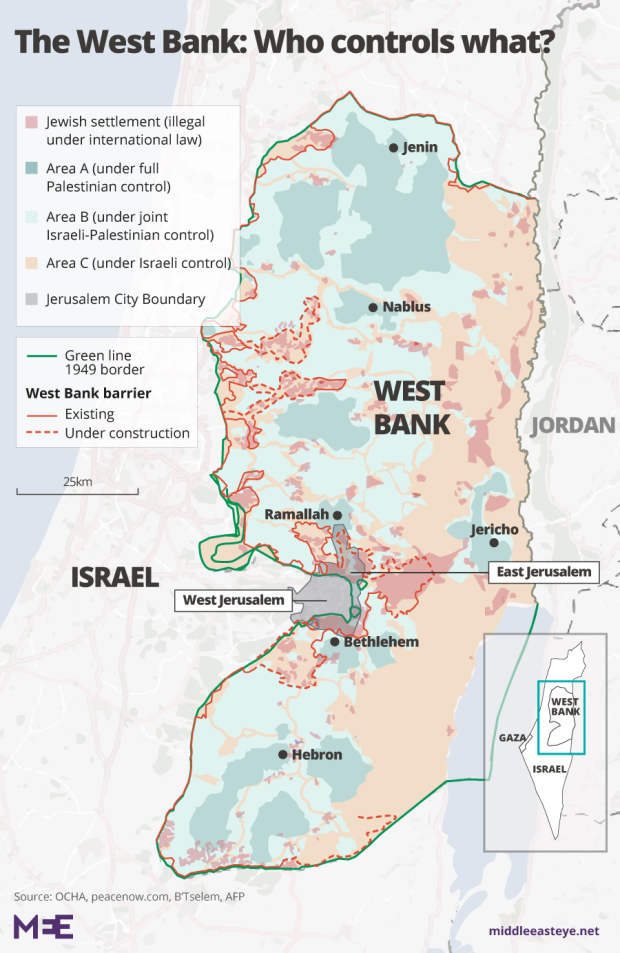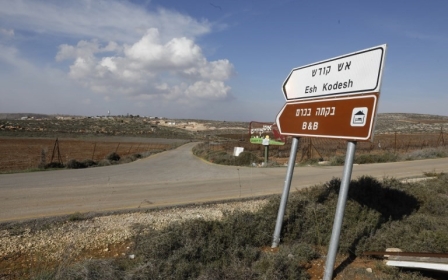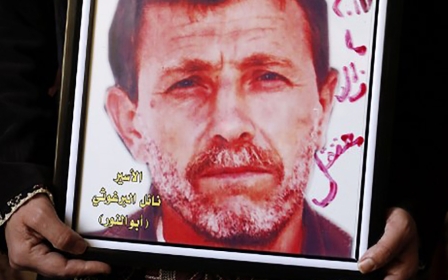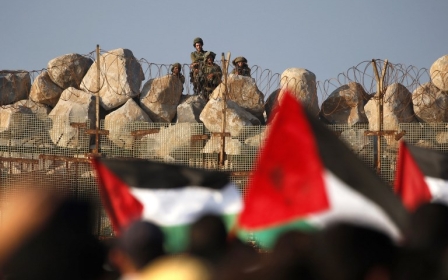Israeli occupation: More of the same in 2019
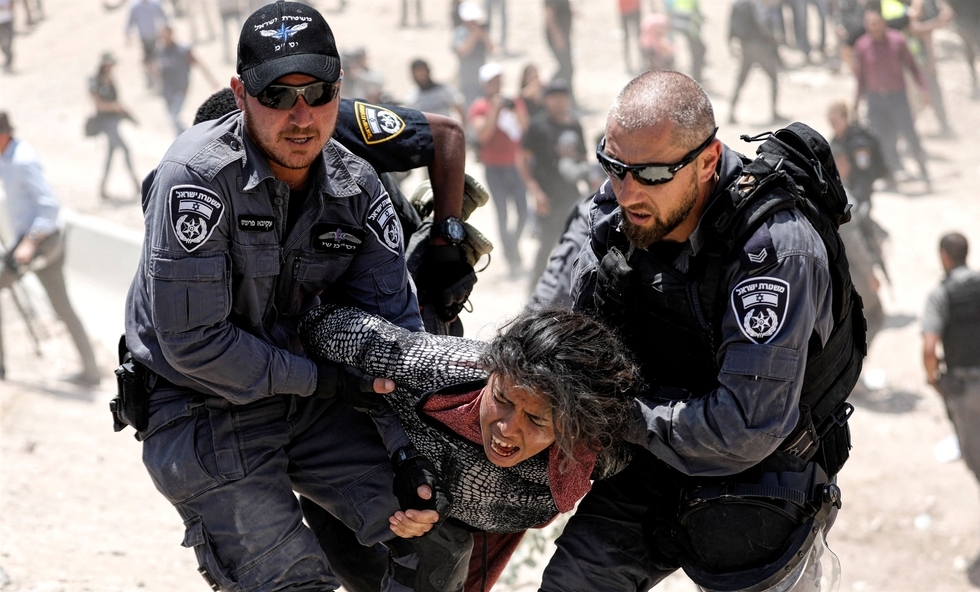
On 13 December, shortly after two Israeli soldiers had been shot dead outside an illegal Israeli settlement in the occupied West Bank, Yaakov Katz, editor-in-chief of The Jerusalem Post tweeted the following: “They celebrate death and we celebrate life. That is the core of this conflict.”
Katz’s tweet encapsulated the dehumanisation of Palestinians, and utter denial about the reality of occupation and colonialism, that is unfortunately all too common amongst Jewish Israelis.
The occupied and occupation
"Incitement", "brainwashing", "religious fervour", "extremism", "social media", "family problems" – variations on familiar refrains are trotted out, time and time again. Anything to avoid facing an equation familiar to every colonial power throughout history: the occupied always reject occupation.
It's doubtful whether Katz, or any of the other apartheid apologists, ever imagine what it must be like to be a Palestinian in the West Bank, to have so much of your life controlled by a soldier’s whim and a general’s decision. Your house? Demolished. Your child? Shot dead. Your colleague? Jailed.
Palestinian children do not need to be taught to hate when settlers attack them on their way to school, or when Israeli soldiers shoot their classmates, or when military judges jail their parents
Israeli politicians and "security" officials tell us that Palestinian youth are fed a diet of hatred and incitement – at schools, in mosques, and online. But Palestinian children do not need to be taught to hate when settlers attack them on their way to school, or when Israeli soldiers shoot their classmates, or when military judges jail their parents. Living under occupation is its own education – and it lasts a lifetime.
It is hard to overstate the extent to which Israel’s colonial occupation degrades and brutalises Palestinians. Their homes and properties can be taken. Their bodies can be tortured. Their lives can be extinguished. And all of the above with total impunity.
In its daily activities, the "Israel Defence Forces" is, first and foremost, above all else, a colonial army.
A military regime
According to former officers, “the number of soldiers the army needs to keep in the West Bank amounts to more than half, and occasionally two thirds, of its regular forces engaged in operational duties.” And 80 percent of those forces “are involved in direct protection of the settlements”.
Of the 14 Israelis killed by Palestinians this year, seven were uniformed soldiers, and seven were settlers – all were killed in the occupied Palestinian territory. According to Israeli authorities’ own figures, out of 330 “terrorist attacks” in October (a category that includes throwing Molotov cocktails at occupation forces), not a single one was “executed within the Green Line”.
The only concern for Israeli authorities is an anxiety not to upset the "equilibrium" to which so many resources are dedicated: enough repression to subdue resistance, but not enough to provoke a wider uprising
Yet rather than draw the obvious conclusions from the above data – namely, that a military regime dedicated to protecting a settler population and apartheid system will necessarily engender a dynamic of revolt and repression – Israel only knows how to double down on occupation.
Over the second week of December, for example, many Israelis have complained that the army’s “deterrence has been lost”, with demands from politicians and settlers for fresh collective punishment policies.
These include further limits on freedom of movement for Palestinians, home demolitions, sanctions on the Palestinian Authority and in addition, a boost to the colonisation of Palestinian land through settlement expansion and outpost authorisation.The only concern for Israeli authorities weighing up such options – especially the military and bodies like the Shin Bet – is an anxiety not to upset the "equilibrium" to which so many resources are dedicated: enough repression to subdue resistance, but not enough to provoke a wider uprising.
2019: A wider revolt
Though Israeli analysts have fretted over a ‘spike’ in violence in the West Bank, the odds are currently stacked against an intifada.
As Mouin Rabbani wrote back in 2015, “observations that the Palestinians have not had it so bad since 1948 should reference not only the various indicators that would lead one to suggest another uprising is imminent, but also those factors that together conspire against renewed rebellion”.
The absence, in Rabbani’s words, of “an organisational infrastructure that can once again channel popular fury and mobilize, organize, and sustain a new Palestinian intifada”, remains.
Looking ahead to 2019, the next year promises more of the same. Israel will go to the polls in April, and Prime Minister Benjamin Netanyahu will not want to be outflanked to his right by Jewish Home; the settlers urging a crackdown on Palestinians may be granted their wish.
On the other hand, keen to avoid an election season dominated by a wave of Israeli casualties in the West Bank, Netanyahu will also be inclined to heed the warnings from army and intelligence officials regarding fuelling a wider revolt.
The status quo is thus likely to prevail – barring, of course, an unexpected development – which means more occupation and periodic, but limited, escalations. And all the while, the Israeli government will assure us that there is no partner for peace, the Palestinians teach their children to hate, and that to even dare breathe the word "apartheid" is nothing but an antisemitic lie.
- Ben White is the author of Israeli Apartheid: A Beginner's Guide and Palestinians in Israel: Segregation, Discrimination and Democracy. He is a writer for Middle East Monitor and his articles have been published by Al Jazeera, al-Araby, Huffington Post, the Electronic Intifada, the Guardian's Comment is Free and more.
The views expressed in this article belong to the author and do not necessarily reflect the editorial policy of Middle East Eye.
Photo: Israeli policemen detain a Palestinian girl in Khan al-Ahmar, West Bank on 4 July 2018 (Reuters)
This article is available in French on Middle East Eye French edition.
Middle East Eye propose une couverture et une analyse indépendantes et incomparables du Moyen-Orient, de l’Afrique du Nord et d’autres régions du monde. Pour en savoir plus sur la reprise de ce contenu et les frais qui s’appliquent, veuillez remplir ce formulaire [en anglais]. Pour en savoir plus sur MEE, cliquez ici [en anglais].



